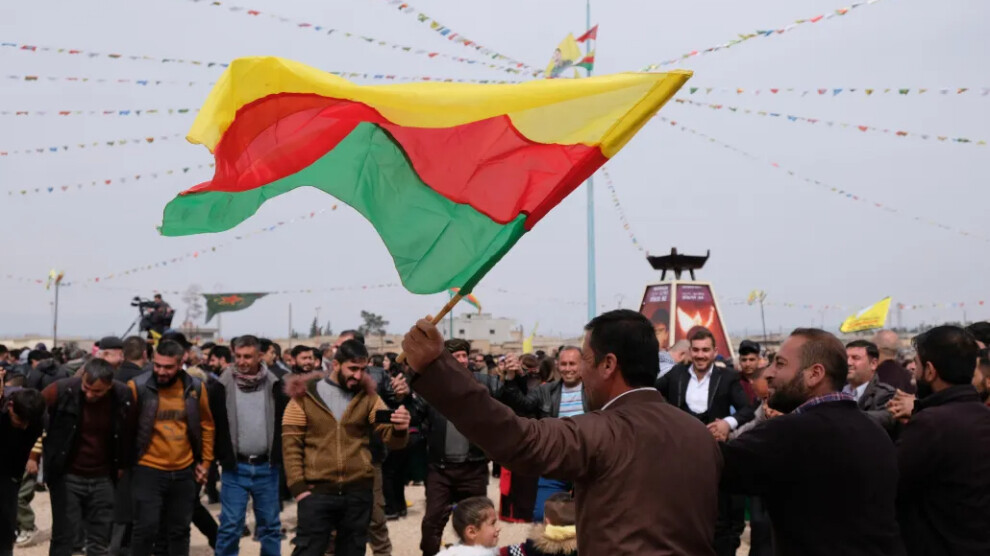Rojava Information Centre publishes new report about the Rojava Revolution
History of the Revolution: Much Achieved, Still Much to be Done, is the title of the new report about the Rojava Revolution published by RIC.
History of the Revolution: Much Achieved, Still Much to be Done, is the title of the new report about the Rojava Revolution published by RIC.

The Rojava Information Centre (RIC) celebrated the 10th anniversary of the Rojava Revolution by publishing a new report called "History of the Revolution: Much Achieved, Still Much to be Done".
In the introduction of Part One, RIC wrote: "The ‘Rojava Revolution’ began exactly ten years ago, on July 19th 2012, when three predominantly Kurdish-inhabited areas of Syria declared their autonomy from the central government.
Since then, a democratic, autonomous administration has attempted to create a grassroots, gender-equal and ecological society in these areas. Communes and councils, the democratic representatives of the population, organize life and administer society.
The political model has thus established itself in decided opposition to the old Ba’ath regime. Numerous people within society are involved in a wide variety of local and social activities – from the communes and councils to working in the health sector, the women’s movement or in self-defence structures."
The introduction underlined that "Rojava has also been synonymous with the war against the Islamic State (ISIS), the occupation of Turkey, overcrowded refugee camps, water shortages, crop failures and widespread poverty. But against the backdrop of an ongoing war, occupation, an embargo due to the Syrian Civil War, and a precarious humanitarian situation that makes basic staples scarce, Rojava has held its ground for ten years. The areas controlled by the democratic ‘Autonomous Administration of North and East Syria’ (AANES) have grown since 2012 and now include a third of Syrian territory and nearly a fifth of its population.
A decade on, the continued existence of North and East Syria (NES) – the more inclusive name of the region, which encompasses Kurdish-majority Rojava and the Arab-majority areas on the banks of the Euphrates – is an achievement in and of itself. In the eleven years since 2011, the Rojava Revolution has remained committed to its former values and consolidated its achievements, even as all other gains of the so-called ‘Arab Spring’ uprisings were squashed or coopted by national governments. This revolution, however imperfect, thus has something to teach the world about staying power."